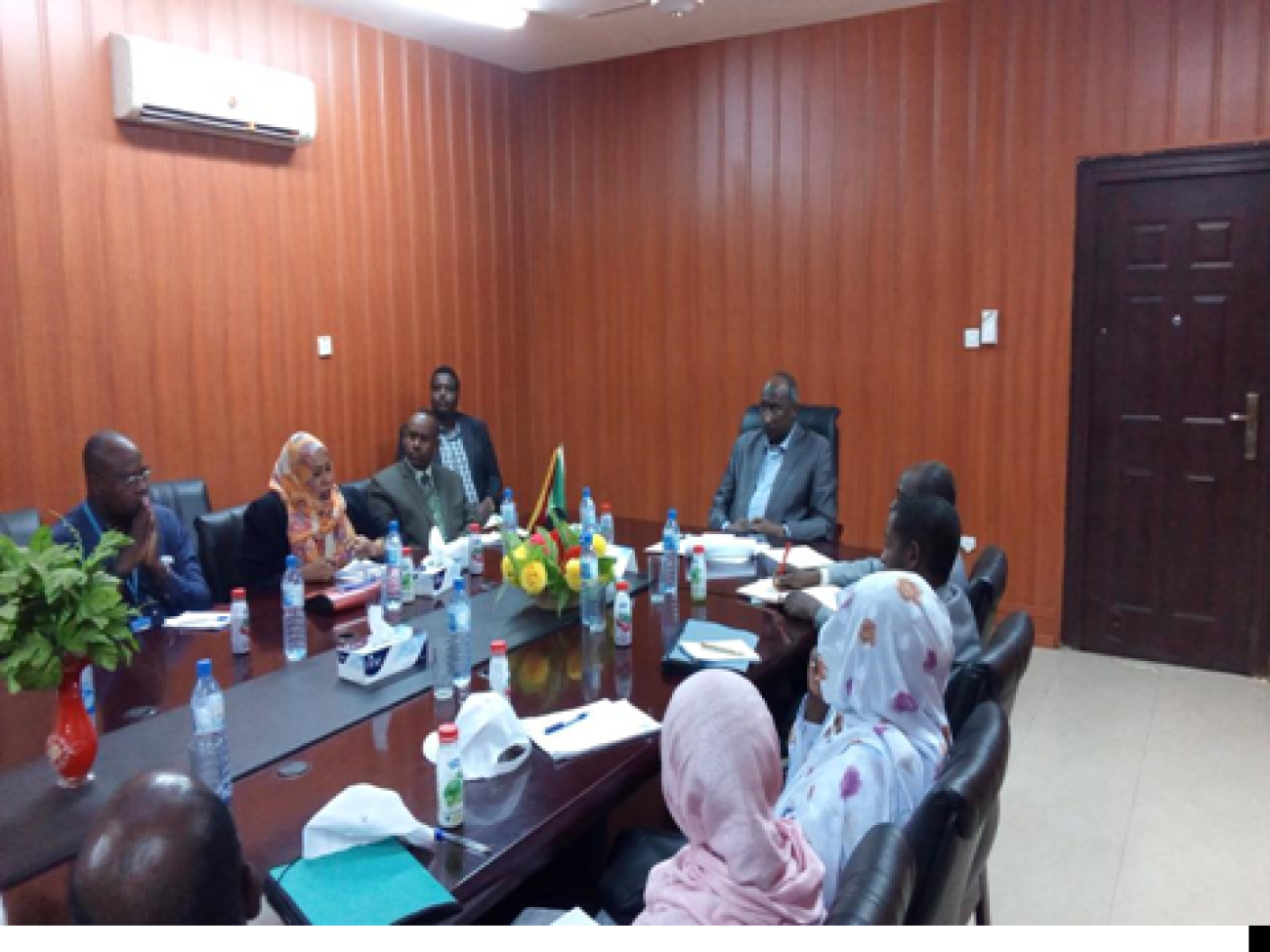The health sector in Sudan is faced with challenges of scarce and inconsistent data mainly due to the country’s federal governance system and multiple state actors.
“Documentation is sometimes lacking and we have to talk to people directly to collect the necessary information. Getting detailed financial and budgetary information can be challenging” said Sanna Elobied, a Sudanese inspector working in the National Public Health Institute.
Within this context, a first Joint Annual Review was undertaken by WHO to review the performance of the health sector and to ensure that all stakeholders identify issues that need to be addressed to improve the sector’s performance. In general, joint annual reviews offer a common basis for understanding sector issues to identify whether a country’s health plan is on track, or whether further actions are required. The process includes an analysis of the health sector’s performance in addition to multi-stakeholder meetings to discuss findings and recommendations.
Throughout the process, WHO supported the Federal Ministry of Health by co-organizing preparatory trainings for the Ministry’s staff going on review missions to the country’s states. A documentation of the findings was undertaken by WHO suggesting policy recommendations for improved collaboration with the Federal Ministry.
“We discussed different data gathering tools. For quantitative data, we looked at how many patients were treated, how many medical supplies were used and reviewed the documentations of health facilities. For qualitative data, we considered how people work together in the health facilities and beyond through group discussions. We studied how processes work at different levels from hospital nurse to state governor” stated Sanna while reflecting on one of the sessions she participated in.
In Sudan, the Joint Annual Review functioned as a check-up for the entire health system of the country. The review also provided specific recommendations on how to achieve these improvements covering all sector building blocks that include health governance, service delivery, information systems, human resources, medicine, medical technologies and financing.
“This Joint Annual Review is the first of its kind implemented in Sudan, and it was a very successful one. The team truly took a bottom-up approach to show what is happening in all parts of the country. With the recommendations from the review, our health policy, planning and delivery will be much stronger” says Dr Issam Mohamed Abdallah, Sudan’s Undersecretary of the Federal Ministry of Health.
The partnership between WHO and the Federal Ministry institutionalized the Joint Annual Review thus providing an important platform for accountability for the health sector. Gaps and barriers for implementation have been identified and discussed with recommendations for 2018.
Using the Joint Annual Review approach to improve health policy and strategy places all partners in a better position going forward to enable the country’s achievement of universal health coverage and to meet the Sustainable Development Goal of Good Health and Well-Being.


